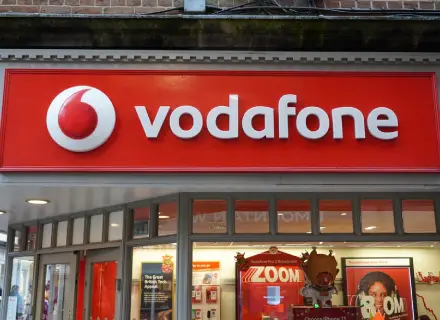The Keir Starmer government’s request that regulators prioritise infrastructure investment and economic growth over lower consumer prices is being reflected in the United Kingdom’s decision to permit the merger of two of its four mobile networks.
The antitrust watchdog, the Competition and Markets Authority (CMA), approved the USD 19 billion Vodafone-Three UK deal on November 5 after accepting the companies’ claim that improved networks would boost competition and boost the economy.
The CMA further said the combined group’s network investment plan would drive competition in the long term, dropping its objection that a move from four to three networks could push up prices.
“We believe the merger is likely to boost competition in the UK mobile sector and should be allowed to proceed – but only if Vodafone and Three agree to implement our proposed measures,” the regulatory body stated.
The CMA angered Microsoft by outright blocking its USD 69 billion Activision Blizzard deal due to concerns about competition in the emerging cloud gaming market. Now the approval comes 18 months later.
Microsoft’s behavioural remedies, which included promises about how the combined company would conduct itself to preserve competition, were rejected at that time because they would be hard to keep an eye on.
A revised deal was approved by the increasingly isolated CMA after Microsoft objected to Britain being closed for business.
It agreed to behavioural remedies for the Vodafone-Three deal, giving telecoms regulator Ofcom the responsibility of monitoring pricing and investment commitments to allay its competition concerns. This is a shift in the regulator’s strategy.
In October 2024, Keir Starmer told a group of foreign investors that the CMA, which has been more involved in merger control since Britain’s exit from the European Union, and other regulators needed to take “growth as seriously as this room does.”
When the deal was announced in June 2023, Margherita Della Valle, the CEO of Vodafone, put growth at the forefront of her pitch, and that message resonated with her.
Recently, she asserted that “the UK’s economic growth ambitions and many aspects of our lives depend on good connectivity.”
In terms of 5G availability and download speeds, Britain ranks 22nd out of 25 European countries, offering some of the slowest mobile speeds in the continent, according to analytics firm OpenSignal.
Operators across Europe have argued that regulators’ focus on low prices has hurt investment and left its digital infrastructure trailing the United States and Asia, hampering the continent’s economies.
The four-to-three mergers that were allowed required the creation of challenger brands to keep prices low. The CMA’s latest action now marks the first time a major European market has allowed such a deal without structural remedies.
Instead, Vodafone and Three, Britain’s third and fourth operators respectively, committed to spending 11 billion pounds (USD 14 billion) on a 5G network that would serve 50 million customers, including the subscribers of Vodafone’s network sharing partner Virgin Media O2 (VM O2).
It also sold spectrum to VM O2, pledged to cap some tariffs and agreed to set contract terms for mobile virtual operators.
The CMA accepted that three stronger operators – Vodafone-Three, current market leader BT and VM O2 would provide enough competition to deliver a better service for customers.
Della Valle, however, said it was too soon to say if the group would keep both main brands and its Voxi and Smarty value brands.
Analyst Karen Egan at Enders Analysis told Reuters that the approval was the right outcome after Hong Kong’s Hutchison warned it was struggling to invest because it did not make a return on its capital.
“Three high-quality networks instead of four inferior ones will serve consumers and businesses better, and the industry can move away from the low returns, low investment cycle that has dogged it,” Egan said.
Vodafone will own 51% of the combined company and will have the option to buy the remainder after three years subject to certain conditions.

